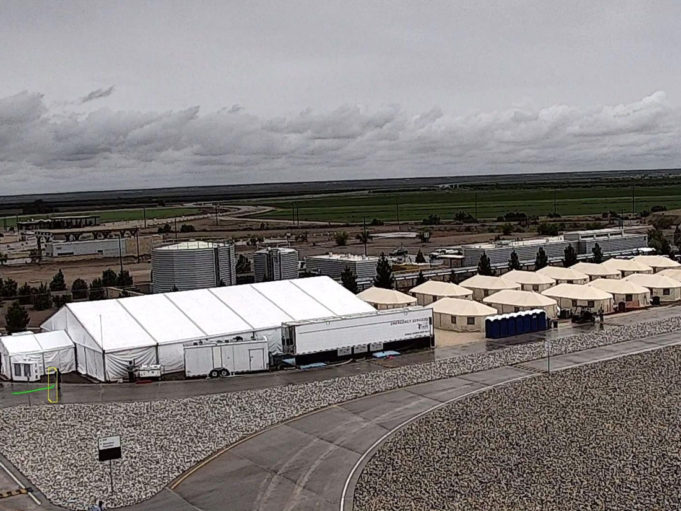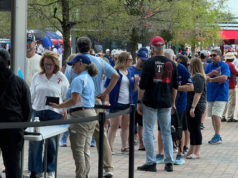The beautiful white tents gleaming in the West Texas sun are the temporary homes of undocumented kids between the ages of 12 and 17 awaiting placement in foster homes or with family or friends. Many of them arrived from strife-torn Guatemala and El Salvador in recent months. What binds them together is that they all arrived unaccompanied by adults.
These are not the children being separated from their parents, according to an anonymous spokesperson for the Department of Health and Human Services, which oversees the huge facility. “All of the children at Tornillo are not separated from their families per the administration’s family separation policy from earlier this summer.”
The population at Tent City, located about 35 miles southeast of El Paso, has swollen from 400 to “just over 1,600” in the past two weeks, according to HHS. The population increase, according to a Sunday story in The New York Times, is the result of a new federal policy that has HHS workers heading out to these youngsters’ former shelters in the middle of the night and bussing them to Tornillo. According to the Times, the administration collects and moves the children at night and on short notice to prevent any escape attempts.
Running the operation day-to-day is BCHS, a nonprofit that works with other nonprofits around the world to handle disaster relief. According to reports from Congress, housing costs for each bed run roughly $750 per night at Tornillo. That comes to $438 million annually at current population levels. Neither HHS nor BCFS explained why costs were so high — more than triple any other type of housing facility for undocumented migrants.
“It is huge money,” said Bob Libal, director of Grassroots Leadership, a nonprofit working to end private prisons in the United States. “The argument is that you need to house these kids somewhere, but we should have them in foster homes or with family, not these huge facilities which anyone would say is not in the best interest of the children.”
While housed in shelters or foster homes, the kids are regularly monitored, afforded legal help with asylum applications, and forced to attend school. Because Tornillo is considered an emergency facility, schooling is neither required nor offered, and access to legal help is limited.
The youngsters in Tornillo will generally spend no longer than 20 days at the tent facility, as most are in the final stages of being released to family members or friends. But with more than 13,000 undocumented children and young adults currently being detained, those beds will not stay empty long. According to the HHS spokesperson, the facility has already been expanded to house more than 3,500 if needed.
According to HHS, while the number of children arriving at our southern border has slowed in recent years, vetting of family members or friends with which to place those children has intensified, creating a bottleneck for their release. According to several groups who work with undocumented migrants, when undocumented family members or friends come forward to sponsor a youngster, they are now often picked up for deportation themselves, making many hesitant. According to the Times, federal authorities in June changed the policy of sponsorship — theoretically for the protection of the youngsters, who are sometimes preyed upon by human traffickers — so that potential sponsors are now being fingerprinted, and those prints are shared with immigration authorities.












